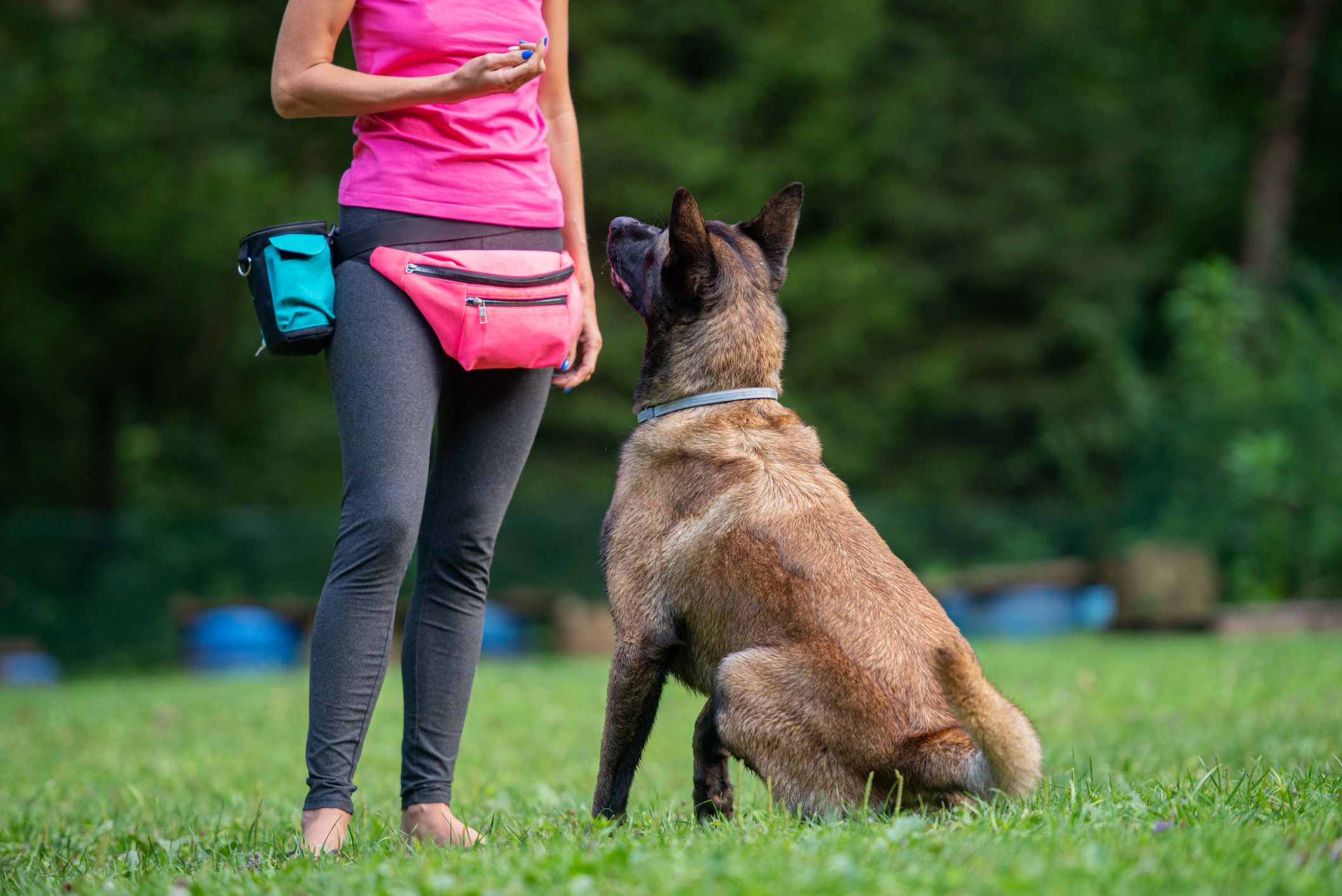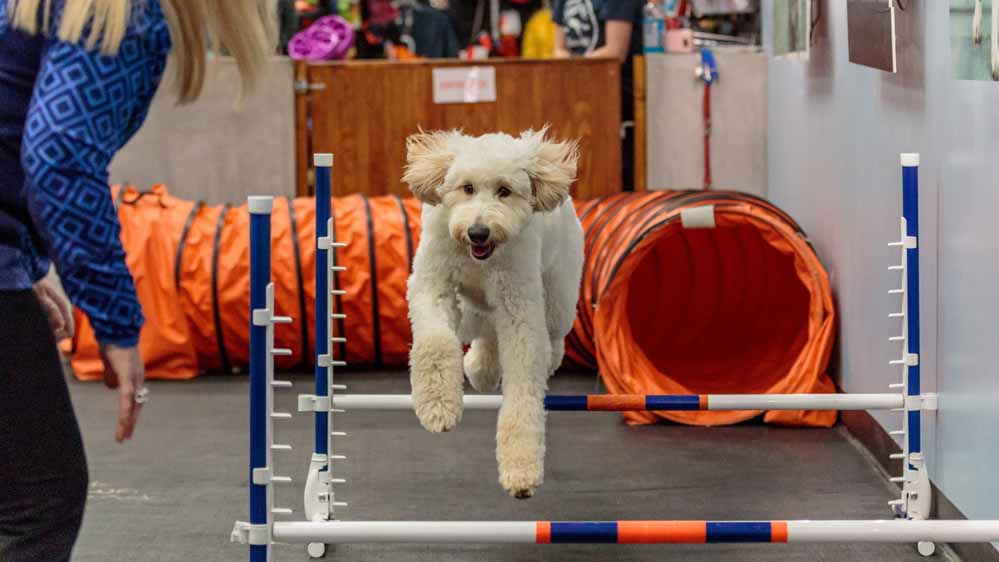Dog Training For Dogs: Crucial Abilities for Your Pup's Development
Dog Training For Dogs: Crucial Abilities for Your Pup's Development
Blog Article
Top Pet Dog Training Methods for Every Stage of Your Pet's Life
Efficient pet training is crucial at every phase of a canine's life, as each phase provides distinct challenges and opportunities for growth. It is important to acknowledge that training ought to develop together with a canine's development, making sure that techniques stay effective and relevant.
Young Puppy Educating Fundamentals
Puppy training essentials prepared for a mannerly grown-up canine and entail several vital components that must not be forgotten. The first phase of training concentrates on establishing a solid bond in between the pup and its owner, which is critical for efficient communication. Socializing is extremely important; subjecting young puppies to various settings, people, and various other pets helps them develop self-confidence and adaptability, lowering the probability of behavioral concerns later on in life.
Basic commands, such as rest, stay, and come, create the foundation of obedience training. Making use of favorable reinforcement strategies, such as treats and appreciation, motivates wanted habits and cultivates a positive learning experience. Uniformity in commands and training sessions is vital, as pups flourish on regular and structure.
In addition, house training is a necessary element of young puppy training. Developing a routine schedule for shower room breaks and using marked locations can help decrease mishaps and promote excellent behaviors. Generally, a well-shaped technique to puppy training, integrating obedience, socialization, and residence training, sets the phase for a well-adjusted adult pet dog, ensuring a harmonious partnership between the pet dog and its proprietor.
Teen Actions Management
As young puppies grow right into adolescents, their behavior can alter substantially, often providing brand-new obstacles for owners. This developing phase, usually occurring in between 6 months and 2 years, is marked by enhanced power degrees, inquisitiveness, and an expanding feeling of freedom. Comprehending these adjustments is crucial for effective habits management.
Adolescents may exhibit defiant propensities, such as overlooking commands they formerly understood or taking part in harmful habits. Consistency in training stays critical; strengthening learned behaviors through positive reinforcement can help counteract these challenges. Short, appealing training sessions are necessary to keep their passion and emphasis.

In addition, establishing an organized routine can dramatically enhance a teen dog's sense of safety and security. Routine workout is essential to direct their energy positively, lowering the chance of undesirable behaviors. By employing these techniques, owners can successfully browse the intricacies of teen habits, promoting a well-adjusted, delighted canine buddy.
Grown-up Pet Dog Obedience Methods

Favorable support remains an essential method; fulfilling etiquette with deals with, praise, or play motivates conformity. Uniformity is important; the very same commands and benefits need to be utilized by all relative to avoid confusion.
Integrating training right into everyday regimens can additionally work. Practice commands during walks or meal times, enabling training to mix seamlessly right into day-to-day life. Involving in organized tasks, like agility programs or obedience classes, can imp source additionally enhance a dog's skills while providing valuable socializing chances.
It is essential to recognize that adult dogs might also show stubbornness or complacency. Readjusting training strategies to keep their rate of interest, such as varying incentives or introducing new commands, can help sustain inspiration. In general, a recurring dedication to obedience training will foster a balanced and well-behaved adult pet.
Elderly Canine Adaptation Approaches
Identifying the distinct needs of elderly canines is important for ensuring their convenience and health. As dogs age, they may experience a decrease in movement, vision, and cognitive function, demanding customized adaptation techniques.
First, take into consideration changing the living atmosphere. Ensure that the home is secure and available; get rid of challenges and offer non-slip surfaces to avoid falls. In addition, think about making use of steps or ramps to aid them access their favorite rooms.
Secondly, workout must be adapted to represent decreased endurance and joint health (Dog Training For Dogs). Take part in shorter, a lot more constant strolls, and include gentle tasks like swimming, which can be look at more info valuable for arthritic joints
Furthermore, mental stimulation stays crucial. Usage easy challenge playthings or engage in scent job to keep their minds sharp, while preventing frustrating jobs that may irritate them.
Lastly, normal vet check-ups are important to keep track of health changes and change care routines accordingly. By executing these adaptation methods, you can boost the lifestyle for your elderly canine, guaranteeing they age with dignity and comfortably.
Lifelong Learning and Enrichment
While canines of any ages benefit from learning and mental excitement, long-lasting enrichment is specifically vital for keeping cognitive wellness and emotional well-being in both senior and more youthful pets. Involving tasks not just boost a pet dog's lifestyle but likewise enhance the bond between the dog and its proprietor.
Enrichment can take numerous kinds, consisting of interactive playthings, challenge feeders, and scent job, which promote a dog's senses and urge analytical. Regular training sessions, including brand-new commands or methods, keeps their minds sharp and promotes a feeling of achievement. Socialization with other pets and people is equally essential, as it aids protect against behavioral issues and cultivates versatility.
Additionally, integrating exercise right into a pet dog's routine is crucial for total health and wellness. Activities like dexterity training, bring, or long strolls give both mental and physical excitement, guaranteeing canines stay satisfied and engaged.
Last but not least, take into consideration varying the atmosphere by presenting new locations for playdates or walks. This modification can reignite a pet's curiosity and interest for exploration. Lifelong understanding and enrichment not only you can try here add to a satisfying life yet likewise advertise a harmonious connection with your canine companion.
Final Thought
Effective pet training techniques progress throughout a pet's life, dealing with the unique demands of each developing stage. From establishing fundamental abilities in puppies to handling teen actions, reinforcing obedience in adults, and adapting approaches for seniors, a detailed approach makes sure optimum communication and behavior. Highlighting normal psychological stimulation, socialization, and physical workout cultivates a balanced and satisfying life for pets. Inevitably, consistent application of these methods adds to an unified relationship between pet dogs and their human buddies.
Reliable pet training is essential at every stage of a dog's life, as each stage offers special difficulties and chances for growth.Puppy training essentials lay the foundation for a mannerly grown-up pet dog and include a number of essential elements that ought to not be neglected. Generally, a well-rounded method to puppy training, integrating obedience, socializing, and house training, sets the phase for a well-adjusted grown-up canine, guaranteeing a harmonious relationship in between the family pet and its owner.
Many pet proprietors may find that grown-up dogs, while generally more steady in habits than their teen counterparts, still need consistent training to keep obedience and excellent manners.Reliable canine training strategies advance throughout a pet's life, resolving the one-of-a-kind needs of each developing phase.
Report this page